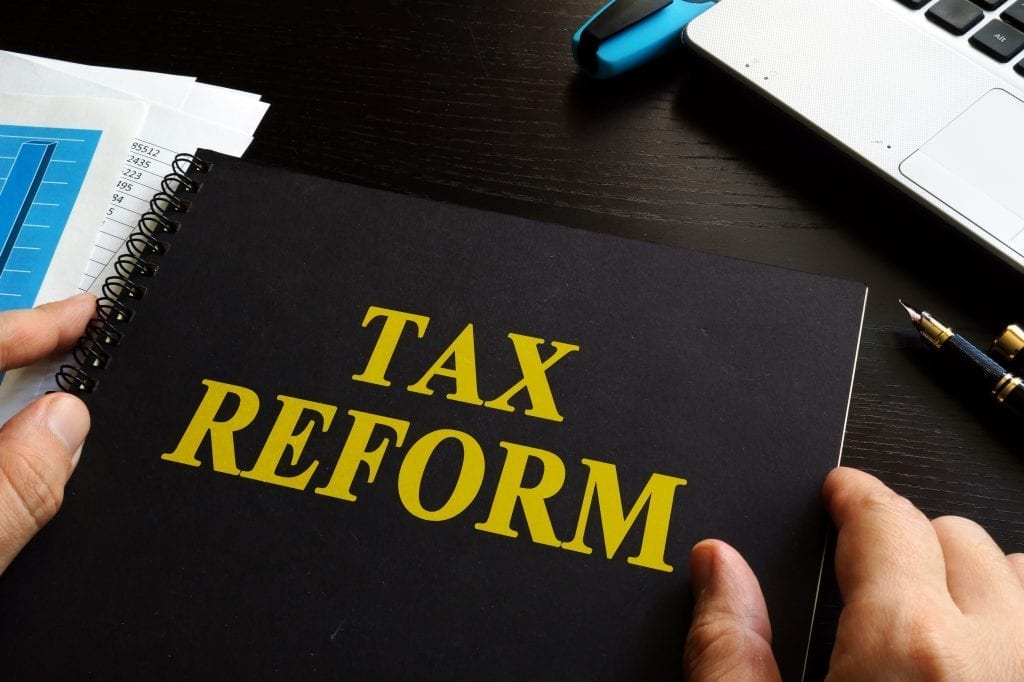- browse by category
- Audit Assistance
- Business and Taxes
- Celebrities in Tax Debt
- Cryptocurrency Taxes
- Economic News
- Foreign Banking
- Innocent Spouse
- IRS Headlines
- IRS Wage Garnishment
- Marriage & Divorce
- Payroll Tax
- Retirement
- Revenue Officers
- State Tax Headlines
- Stop IRS Debt
- Success Stories
- Tax and Politics
- Tax Attorney
- Tax Codes
- Tax Debt Help
- Tax Evasion
- Tax Levy
- Tax Lien
- Tax Payment Plans
- Tax Return Filing
- Tax Tips

Just like any other piece of legislation passed by Congress, you can expect it to take some time for the fine details of the bill to be completely laid out. But if you were wondering when the dust would settle on 2017’s Tax Cuts and Jobs Act, the Treasury Department has an answer: Not quite yet. It has something to say about what’s called a “pass-through business.”
On August 8, the Treasury and the IRS detailed one piece of the $1.5 trillion tax bill. Specifically, a 20 percent deduction against income taxes for pass-through businesses.
The announcement sparked some controversy—namely, whether the bill might benefit Trump’s real estate business. But it probably raised more confusion than anything. If you didn’t have time to read the sweeping, 184-page document (Trust us, we don’t blame you.), you might be wondering if you can expect a benefit for your small business taxes.
Here’s a quick explainer to help you understand what the new tax cut means for you.
What Is a Pass-Through Business?
Let’s start out with the basics.
A pass-through business entity doesn’t pay corporate income taxes. Instead, the income passes through directly to its owners, who then pay their individual income taxes.
For example, a small pizza shop probably is dealing with smaller margins, so a pass-through business structure could be really useful. Instead of paying taxes for the pizza shop and again as an owner, you just pay taxes on your income. Bye-bye, double taxation!
Small businesses aren’t the only ones structured as pass-throughs, though. In fact, most U.S. businesses are—even large firms like the Trump Organization.
New Benefits of Being a Pass-Through Business
Prior to the tax law changes, most pass-through owners (like our pizza shop owner) were taxed at top individual tax rates. Now, small business owners are offered some relief with the 20 percent deduction against their income taxes.
Heads up: Pass-through owners are only slated for this temporary relief through 2025.
Experts are expecting Republicans to consider legislation that would make these cuts permanent—but for now, that expiration date will probably remain unchanged. Which means our pizza shop owner needs to take advantage of the deduction while they can!
Which pass-through businesses actually benefit?
The nitty-gritty details about the bill are pretty complicated. There’s plenty of “X group counts but not if they do Y”—but here’s a few highlights.
Under the new tax law, any business owner earning less than $157,500, or couples earning less than $315,000 and filing jointly, can take the deduction—regardless of the field their business is in. After those thresholds, the tax law starts phasing out who is eligible. And some professions—like doctors, dentists, accountants, performing artists, and athletes—aren’t eligible at all.
There’s a lot more exclusions and exceptions in the bill than we can get into here, but for an in-depth breakdown, Brookings has provided a great resource. Or, enjoy this great breakdown from The Wall Street Journal.
Tax Cut Takeaways
The Tax Cuts and Jobs Act of 2017 was one of the largest tax reform bills in U.S. history. It’s easy to get lost in the details. The best way to maximize your own understanding as a small business owner is by learning about the evolving terms associated with the new tax law.
After all, the more you learn about the tax landscape, the more you can pass that knowledge through to savings.
Leave Comments

Top Tax
secrets revealed
Sign up for our newsletter and be the first to find out when exciting IRS news happens. Yes, exciting. We're really into taxes.


